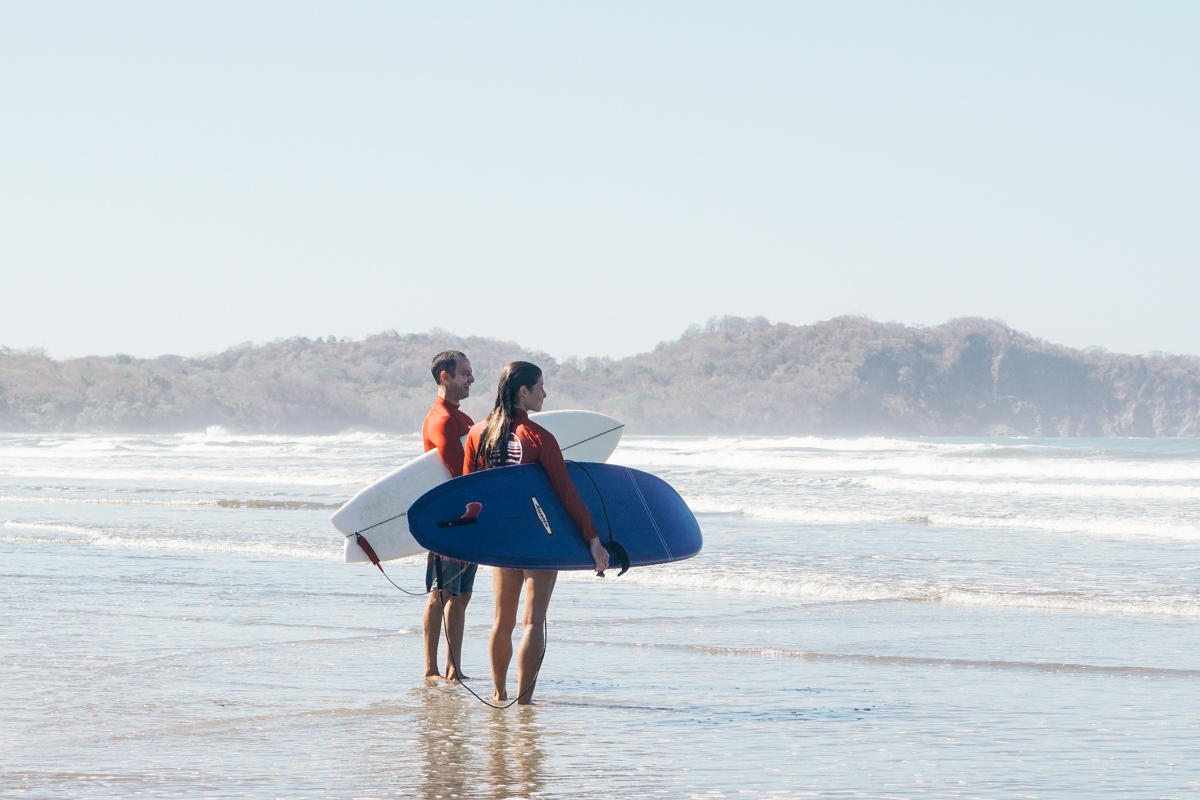Why the size of your board (and your ego) matters when it comes to progressing in surfing.
As a surf coach I find myself often confronted with a common sell. Surfboard size: getting people to ride bigger boards. So here’s the deal, the shortboard revolution planted a seed in everybody’s head. And that seed was that smaller is better. Often the smallest possible board you can ride. The peak of this happened in the 90s where everyone emulated Kelly Slater. A wispy little shortboard, very, very thin and very narrow too. ‘If its good enough for Kelly, its good enough for me’.
In more recent times we’ve moved on from this specific style of slender, thin surfboard. But the shortboard lives on, it’s becoming a timeless design. And why shouldn’t it? The shortboard is still the most widely sold style of board in the world. The 3 fin squash tail thruster is a very successful and versatile shape and allows for some insanely high performance surfing. It is the style of board still used by the vast majority of professionals.
But its dominance has left a crowd, a very large crowd of learner to intermediate surfers hungry. Hungry for its prestige. Hungry for its iconic status. A small board is a badge of pride. Its says ‘i’ve made it to advanced level’.
You see it time and time again, a person surfing a board is in someone’s world deemed fashionable but completely inappropriate. Though some maybe riding a board thats too small because of misinformation or simply not knowing, I would bet a vast majority of improvers are to some extent falling victim to their pride. The truth of the matter is this. If you are feeding your ego with a small board in a vain attempt to look the part you’re in for a long wait to see any improvement.
So lets consider the motivation for this curious behaviour. GQ magazine released an article: How Not to Be A Kook
If we are indeed running from the kook label then we’re gonna get a bit teenaged for a second and consider the term ‘kook’. A kook is not so much someone of low skill but a surfer who regards their skill as better than it actually is, often reflected in the type of board that they ride. Consider the irony in this. In running from a label, you are squarely placing a label upon yourself.
The answer to all this likely lies in a term known as the external locus of evaluation. That is, a behaviour which satisfies an ego drive and an attempt to win the approval of others. Conversely there is also the internal locus of evaluation or a behaviour that satisfies ones more authentic being.
An internal locus of evaluation is considered healthy and derives satisfaction from an authentic part of the self. Whereas an external locus of evaluation whilst can satisfy a temporary ego need, can leave one feeling inauthentic and perhaps a little detached from your wiser self.
The more extreme fashion tastes can be a great example of this.
What would you surf if you were on a desert island alone? Imagine the surf is good and you have a rack of boards of all different shapes and sizes. Except no one is there to watch. This is an interesting question as it can expose an error in your thinking.
Simply put, a board thats too small is going to leave you frustrated, you’ll catch fewer waves and progress slowly. Bigger boards are great for improving. They give you more waves, better waves, allow you to surf at greater speed and yet with more stability and time to make manoeuvre decisions and conscious corrections. Given these advantages guess who’s going to improve more rapidly? And guess who’s going to have more fun?
The shortboard is no doubt one of the most successful shapes but it has a lot to answer for, poisoning the minds of many would be surfers!
Where are the large sweeping cutbacks and floaters? What happened to surfing with flow, grace and style? This is a beautiful stage that the intermediate surf will never reach if they are forever reaching for this arbitrary ideal.
So if you want to get better at surfing, get on that big, unsexy foam board and get putting in the hard graft that will ultimately give you much more joy than prancing around the beach pretending to be something you ain’t!
There are no shortcuts.

